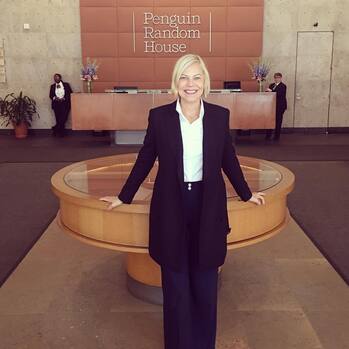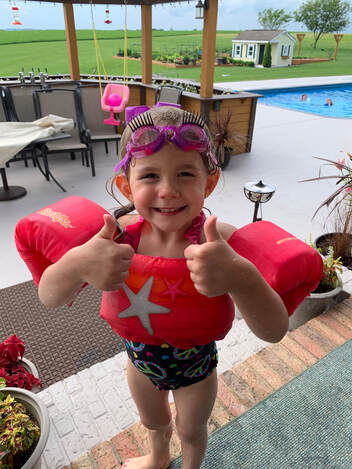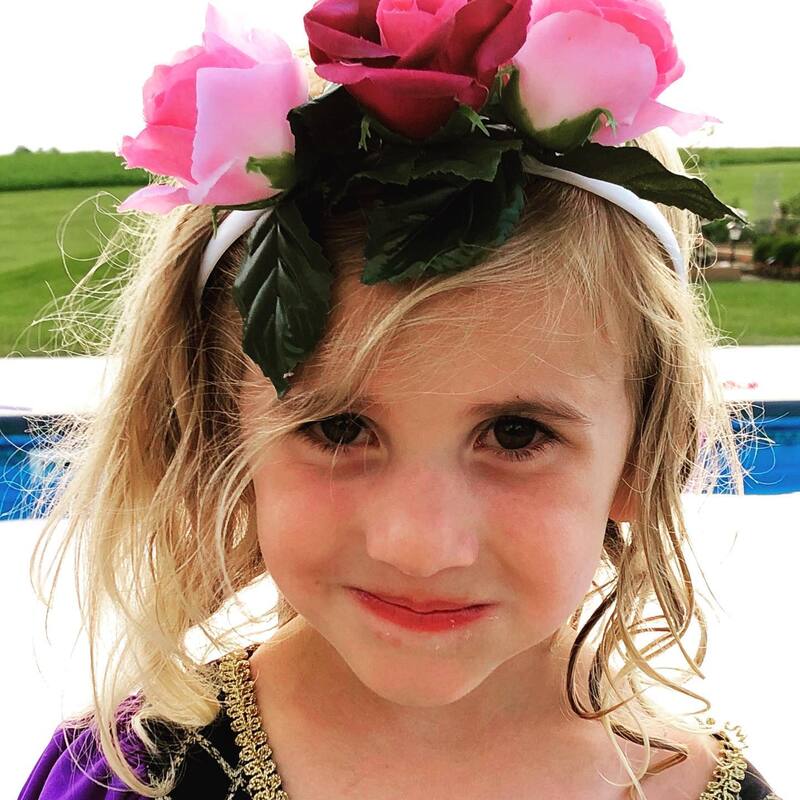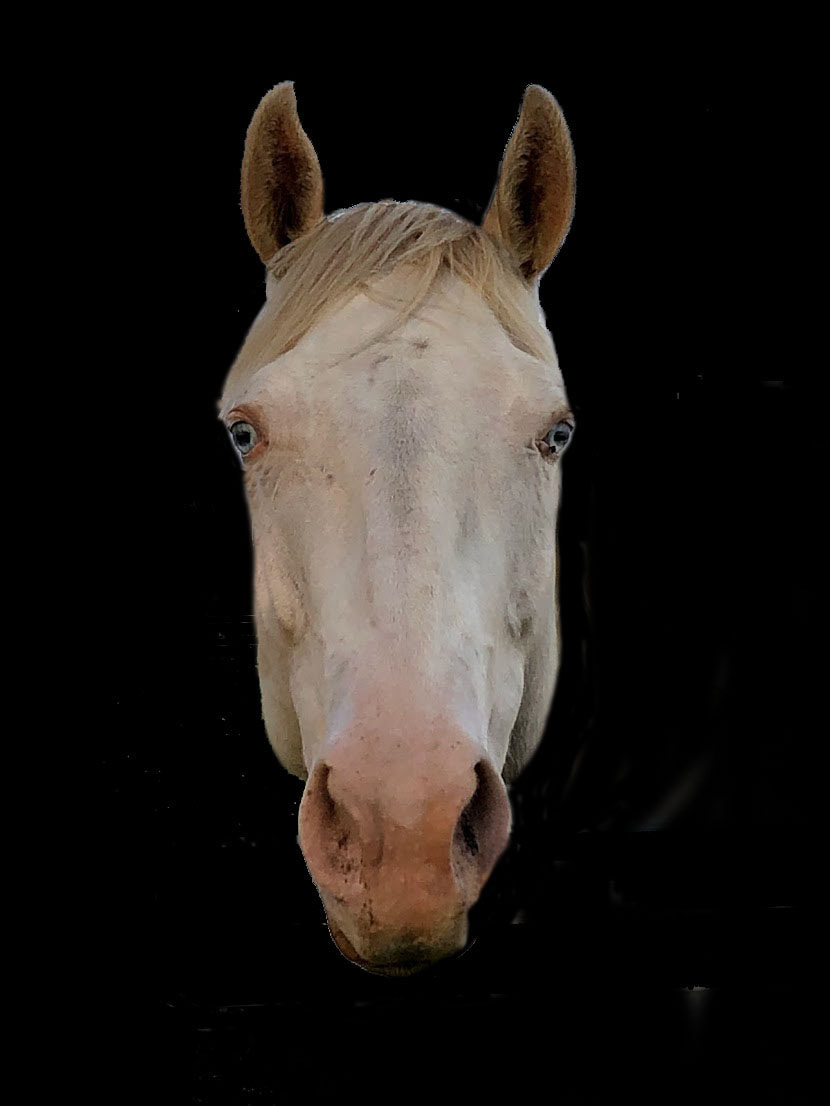|
Photo Credit: Dennis P. Kamoen “When your child enters the room, does your face light up?” ~ Toni Morrison Everyone has access to one powerful and easy attribute that too few have learned to thoroughly leverage. Awhile back, I wrote an article titled, “It’s The Messenger, Not The Medium.” In it, I talked about my journey in becoming camera ready. Here is an outtake: I have a friend who was the one who got Donald Trump media-ready for the “Apprentice,” where she worked at that time as a producer. So of course I asked her what she did. Her advice was simple: practice, practice, practice. Set up a camera and film yourself. I did this and studied the results. From what angles do I look the best? How should I smile. How should I sit? What should I wear? What colors look good on me? What about my voice? Is my enunciation adequate, my tenor too high or too low? Does my passion for my mission come across well? Would I want to listen to me? According to Dale Carnegie in his seminal book, “How to Stop Worrying and Start Living” (one of my all-time favorite books), people think actions mostly follow thoughts … I want to get a bowl of ice cream so I walk into the kitchen and get a bowl of ice cream. But actually, thoughts can follow actions, for example, if you are smiling, you naturally feel happier. If you are acting confidently, pretty soon, you will start to think confidently. Here is the key: it is easier to control your body than your mind. So, pushing your body to do something is easier than forcing your mind to think something (or in many cases, to not think something). What did I learn about myself with all my practicing and recording? Two simple things actually made a huge difference. 1. Smile all the time, even when I’m talking (tricky but possible). 2. Keep my shoulders back and stand or sit up straight no matter what.  You can read my whole article here. It didn’t get a lot of attention because it was when I first started writing on Medium, but I consider it one of my personal favorites. What I found out by watching myself on videos is the secret weapon that we all possess: our smile.  Consider what a smile does: it makes you happier, and broadcasts to the world that you are positive, uplifting, optimistic, and open. It is life-affirming. Translated, it tells people that you like them — that they make you happy. It can be interpreted to mean that you admire them. It says, “I am happy to see you!” Even if you are a stranger. People naturally want to mirror what you are doing so if you are smiling, they will feel the desire to smile in return. And as Dale Carnegie wrote, when you smile, in and of itself, it can make you happy. While conducting research on the physiology of facial expressions in the mid-19th century, French neurologist Guillaume Duchenne identified two distinct types of smiles — one with the facial muscles and one involving the eyes. Since then, researchers have discovered that if you smile with your eyes, including crinkling of the corners sometimes called, your crow’s feet, it represents more of an authentic, joyful smile. And if you smile with just your mouth — artificially raising the corners of your mouth muscles — it can be interpreted as a “fake smile.” This is also sometimes called, “the Pan Am smile,” or “the Botox smile.” So if you are going to try your own Smile Experiment, remember to involve your eyes so you do not appear to be disingenuous. I started experimenting with my smile in everyday life. As I was returning from a long walk, I saw an old friend in the alley. He had recently lost his girlfriend in a suicide and he was depressed himself to the point where he wasn’t sure if he wanted to continue. As I approached him, I smiled my biggest and brightest smile. His face lit up and he returned the smile. I kept smiling. We caught up chatting about this and that. The whole time I smiled. By the end of our conversation, it seemed perhaps as though a burden had been lifted from his shoulders for at least a little while. I have talked to people about my life’s passions and dreams, and their dreams, while smiling. I make sure that when I complement people, I deliver it with a huge smile. When I am meeting friends for dinner, I smile like there is no one else in the world I’d rather see. The results have been remarkable. Not only do I feel better and happier, I think people are more willing to accommodate me, to work with me, to help me if needed. Friends seem to want to hang out with me more. Maybe they find what I’m saying to be more interesting. They want to listen to me. They want to share their truths. Smiling is incredibly easy. It’s free. It’s powerful. Try your own experiment for a few weeks and let me know how it went. And take Toni Morrison’s advice, smile when your child enters the room!!! You can watch the interview on Oprah Winfrey here.
2 Comments
My earliest memory of being bullied happened in the first grade, a sharp pain of being excluded and made fun of by my tender-aged quartet of best friends for reasons I could not at all understand.
It cut a wound that would come back again later in high school, years after that when I was betrayed by my best friend and even as a grown woman when my close group of friends banded together, gossiping about me for a relationship choice they disagreed with. They thought I didn’t know or notice. But I did. And it hurt. I entered first grade early. Back then, you could take a test and if you passed, if you could read, you were able to start first grade as a five year old. Even though my reading skills were up to par, my social skills apparently were not; I didn’t understand the finer points of social cues. After the mean girls incident, another classmate that I didn’t know well, Jane Bulow, took pity on me. She was brave enough to show me kindness, because often that is what kindness in the face of bullies takes. Bravery. Jane Bulow really was her name, by the way. I think it is important that you know that. Jane approached me on the playground as I cried in a corner probably making a fool of myself and blubbering all alone. I really tried to hide my pain. Jane asked me if I was okay. I lied and said, “Yes, I’m okay” and that I was only crying “because I had a sore lip”. Jane was not fooled. She knew exactly why I was there standing alone in the corner by the brick walls and knew how I was feeling. She told me that those girls were awful and I did nothing wrong and then asked if I would like to play with her on the swings. I was immensely relieved as Jane threw me that life preserver. In hindsight, she was bookish, industrious and reflective. I was fun-loving, silly and playful. She seemed so much older than all the rest of us and not someone I would normally befriend. She was a child that some might identify as having an old soul. It’s amazing though how an act of kindness will engender loyalty from the recipient of that kindness. It is powerful. I ended up developing a close friendship with Jane. I learned to appreciate her studiousness. She didn’t buy into the whole ruse of the importance of popularity. She saw right through those girls too and her kindness made me realize that humanity, consideration and sympathy were character traits that I wanted to embody. I wanted to be like her. She showed me a better way and I reflect on her kindness often with everlasting gratitude. According to GreatSchools.org: Without any education or support from adults, the vast majority of children will not take any action if they are bystanders to the act of bullying. “The proportion of children who will spontaneously intervene is about one in five,” says Ken Rigby, adjunct professor of education at the University of South Australia and the author of many books on bullying. “Children on the whole feel bullying is wrong and unfair, and most want to intervene, but there are all sorts of reasons why they don’t.” The first step in empowering bystanders to act is to help them see that their peers also feel bullying is wrong. “Once they recognize that many of their friends want them to intervene, they are more likely to,” says Rigby. Another imperative in the fight against bullying is to teach children that intervening can make a positive difference. Indeed, if fellow students will intervene, it can reduce bullying more effectively than anything. “Most bullies bully because they want to impress people and they like an audience. So if the audience is booing instead of clapping, they realize they’re losing their audience,” says Rigby. In an age when bullying can lead to far more serious consequences than hurt feelings — like Columbine High School, many adults are starting to take notice. But not nearly enough. The long-term effects from bullying are grim and the societal negative consequences are staggering. But even schoolyard bullying hurts, gossip hurts, being excluded hurts, no matter what your age. Read more about anti-bullying programs here. Looking back, I came up with a hundred or so things I could have done in that situation, but as a young child, I was paralyzed. Ultimately, it is so hard to stand up to bullies and it takes bravery, the kind of courage that sometimes can only come from an old soul, from a child who shows more wisdom than the adults that surround her. Childhood friends come and go. What happened to my dear friend Jane? That summer, she was riding her horse when a disturbed hornet stung it. The horse bucked, as they do sometimes in such situations, and threw Jane off. In an age before we routinely wore helmets, she hit her head on a rock and was killed instantly. My mom took me to her funeral. Jane’s mom pulled us aside and confided that her husband went right out into the field and shot and killed the horse. I was mortified. The horse. A tragedy all the way around. When we got back to our car in the parking lot of the funeral home my mom put her head in her hands and sobbed. I found myself comforting her. I asked her why she was so sad. I felt like she had no right to be more upset than me. Jane was my friend. She didn’t even know Jane. I should be the one sobbing in my hands. And my mom finally explained why she was crying and of course, it was something I could never understand until I had children of my own. Losing a child is a tragedy so profound that no one can really begin to comprehend unless they have a child. And even then… Mom didn’t say this to me in a condescending way. It was in a loving way, and that was how she, in that moment, and in many thousands of moments since, showed her unconditional love and kindness to me. My mother is an old soul, too. For my whole life, I have always stood up for and rooted for the underdog, especially in sports. Any time I have seen some injustice happening, I have stepped in, even sometimes at my own peril. When my own children were beset by an occasional bully I immediately inserted myself into the situation, even at the risk of them being angry with me. And as for Jane, I think of her often. #janebulowlives #kindness #stopbullying #oldsouls |
All images and designs copyright © 2008-2020 Cynthia Wylie. All Rights Reserved. Contact for licensing opportunities.




 RSS Feed
RSS Feed








